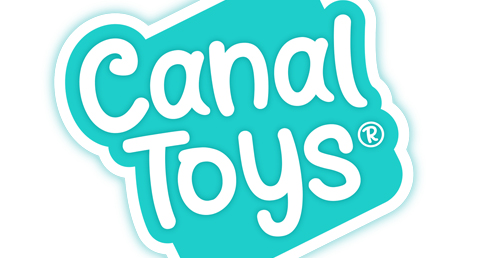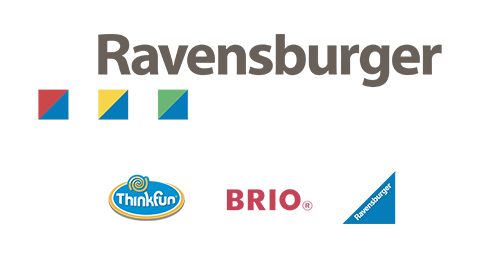As UK retail continues to gently tick over as we head towards Easter (and I appreciate it might be said that I am being quite generous there), the biggest toy retail story of the week comes from Spain, where the specialist toy retail chain Poly Juguetes has sadly started the liquidation process. All stores currently remain open, in the hope of finding a new buyer to take the business forward. The Poly Group was, of course, acquired by The Teal Group – parent company of The Entertainer – in 2018, as part of its ambitious global expansion plans. Sadly, things didn’t work out according to plan.
I certainly don’t profess to be an expert on the Spanish toy market. I have a working knowledge of some of its foibles – but I am not immersed in it in the same way I am in the UK toy community. So full disclosure, what follows is heavily based on comments that have been made to me, which may or may not represent the full picture (there are always two sides to every story) – so please accept them in the spirit of ‘some might say’…
I do know from previous conversations with key people at The Entertainer that there have been some challenges with the Poly operation and the Spanish market in general, beyond what they had envisaged when they bought into the business. The Spanish toy community is perceived to be very close-knit and quite traditional. In some cases, people and companies have worked a certain way for decades.
The language barrier was another issue – I was once told that there were only a handful of employees in the Spanish head office who spoke English well enough to accompany the Entertainer team on store visits and to contribute effectively to internal meetings (although equally, how many Spanish speakers are employed in Amersham?). There were rumours of employees unhappy with being asked to change the way they worked overnight, and even darker rumours of a small number who may have been using their positions for personal financial gain for years before the takeover. There were also rumblings of discontent amongst the Spanish vendor community about the change in trading terms and buying strategies.
The Entertainer certainly isn’t the first – and won’t be the last – organisation to encounter local cultural barriers, and to experience challenges introducing its own work culture to a business that is run differently. Indeed, there were whispers suggesting that Smyths had a few hiccups when it first attempted to integrate Toys R Us GAS into its operation, but I understand those issues were resolved and the two businesses are now working well together.
The Entertainer appears to have faced a level of challenges that ultimately proved insurmountable. However, the retailer has faced challenges in the UK market in recent years and overcome them. So, what was different about Spain? Here I am relaying some of the comments I received after we broke the story earlier this week. One person wrote: “The first thing a multinational should do when buying a company from Spain is to look for a management team that knows the business or Spanish retail in general, and to define a joint strategy together, listening to people who know the territory. Instead, they wanted to “impose” all commercial policies – especially purchases, conditions, assortment, margins – without taking into account how Spanish retail worked, or the opinions of suppliers and local employees. That made it very difficult for local operations to work. We live in a global world, but there are basic issues that need to be put into practice.”
One supplier was more specific: “The Entertainer management stuck to their margin requirements. Spanish toy companies closed ranks and wouldn’t play ball, so they ended up getting most of their stock from UK suppliers.”
Another wrote: “The Entertainer introduced its company policy of not opening on Sundays to Poly, a chain of toy stores whose most successful stores were located in commercial centres. The lease terms of these stores were seven day/week opening. Poly was forced to pay fines for every Sunday the stores were closed and then was eventually forced to close its most profitable stores when the leases were up for renewal. as the landlords understandably would not renew.”
Feelings are clearly running high in the Spanish toy community. I cannot say whether these comments are accurate representations of what happened – and indeed we may never know the full story (people love to talk about their successes, but are often understandably reluctant to openly dissect when something doesn’t go to plan). But clearly there is a perception within the Spanish market that these factors contributed to The Entertainer deciding to cut its ties with Poly.
Arguably, these observations have even greater prescience following The Entertainer’s deal to introduce outlets into Tesco stores here in the UK. The debate about assortment and (particularly) margin for the new arrangement has been the most talked-about topic across the UK toy community since the news broke. As a direct consequence of margin requirements, the barring of certain product lines from being stocked by the Spanish stores and the lack of vendor co-operation, did the product mix in Poly stores ultimately appeal to Spanish consumers? Similarly, will the mix in The Entertainer’s Tesco outlets – likely to be markedly different to the previous toy aisles – appeal to Tesco shoppers? In the case of the latter question, we don’t have long to wait now to find out.
Indeed, it may well be the Tesco deal that brought the whole Poly situation to a head: in terms of time and capital, The Entertainer has an immense project on its hands, and maybe has decided it needs to focus all its resources on this new arrangement to make sure it delivers.
I received a lot of feedback to last week’s Blog, which looked at some of the ways the toy market has changed in recent years. It is perhaps no great surprise that many toy suppliers don’t want things to change – they were doing fine as they were. One said to me last week: “Oh for the days of actual volume commitments, selections from experienced toy hands, bulk deliveries into customer’s DC’s etc. Now everything is a ‘drop ship’ and/or a stick it online approach, rather than getting behind good innovative product. And don’t get me started on own brand development…”
There are clearly concerns amongst toy suppliers over the whole The Entertainer / Tesco arrangement, especially amongst companies which have historically traded well with the grocer. However, Gary Grant is one of the most astute businessmen I have ever met, and he has built a formidable team around him. All business owners, no matter how successful, face setbacks from time to time. It is how they respond to missteps which counts, and personally I would never underestimate The Entertainer’s ability to bounce back from a blip like this. And let’s hope the Poly Group is successful in finding a new owner, so that stores can stay open and the staff keep their jobs.














